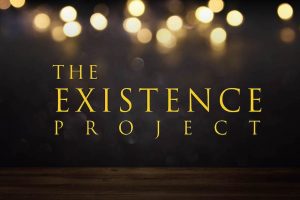The Promised Messiahas wrote over 80 books in Arabic, Urdu, and Persian. Excerpts of his collected works have been translated into English and organised by topic. The Review of Religions is pleased to present these excerpts as part of a monthly feature. Here, The Promised Messiahas elaborates on the subject of the defective concept of God in other religions.
Extracts fromThe Essence of Islam, Vol.I, pp. 50-55.

Free-Photos | pixabay.com
Defective Concepts of God in Other Religions
A study of all religions would reveal that there is no religion, other than Islam, which teaches that God Almighty is absolutely free from all defects and possesses to the full all praiseworthy qualities.
Concepts of Hindus and Arya Samajists
The average Hindu considers his deities as partners in Providence and as sharers in God’s actions. He even regards them as capable of altering God’s designs and of upsetting His decrees. The Hindus also believe that their Parmeshwar, at one time or the other, by way of transmigration, was born in the shape of a human being or some animal even as filthy as swine, and that he became involved in all their ills and vices. In that condition, he was subject, like others of the species, to hunger and thirst, pain and hurt, fear and sorrow, disease and death, humiliation and disgrace, and helplessness and weakness. Thus, it is obvious that such beliefs negate the high qualities of God Almighty and reduce His eternal and everlasting glory and majesty.
Their brothers, the Arya Samajists, who claim that they follow the Vedas strictly, deprive God Almighty of the power of creation. They hold that souls are uncreated and self-existing like God Himself, whereas reason would consider it a defect in God Almighty that He should be the Master of the world and yet should not be the Lord and Creator of something, and that the life of the world should not depend upon His support but should be self-existing. Assume that the following two questions were to be submitted to sane reason: (i) Is it more appropriate and in accord with the perfect praiseworthiness of the All-Powerful God that He should have brought into existence the whole universe out of His Own perfect power and should be its Lord and Creator and that the whole of the universe should be dependent upon His Providence and that the attribute of creation and its power should be inherent in His Being and that He should not be subject to birth or death; (ii) Or is it more in accord with His status that the whole of creation, which is under His control, should not be created by Him and should not be dependent upon Him for its existence, and that He should not be its Creator and Lord and should not possess the attribute of power of creation and He should not be free from the defects of birth and death.

Devanath | pixabay.com
Reason would never hold that He Who is Master of the world is not its Creator and that the thousands of wonderful qualities that are found in souls and bodies are self-existent, and there is no one who created them and that God Who is called the Master of all is master only in name. Nor would it hold that God is without power of creation or is helpless and defective and is given to the consumption of impure articles, or is subject to death, pain, suffering, inaction, or ignorance. On the contrary, reason bears witness that God Almighty should be free from all these low attributes and defects, and should possess full perfection. Full perfection demands the possession of full power. If God Almighty does not possess full power, is not the Creator of anything and is not able to safeguard Himself against loss or defect, He would not have full perfection and by lacking full perfection He would not be worthy of perfect praise.
The Concept of Christians
This is the case of the Hindus and Aryas. What the Christians attribute to God Almighty by way of His Glory is a matter which can be determined by a single question. God Almighty, Who is Perfect and Eternal and Self-Sufficient and Non-Dependent, had carried on all His great works through eternity by Himself. He alone created the universe without the aid of a father or son and bestowed upon souls and bodies all the powers that they needed and is Himself the Guardian, Supporter and Controller of the universe. He brought into being, through His attribute of Rahmaniyyat (Graciousness), all that souls and bodies were to need without waiting for any action on their part, and created the sun and the moon and numberless stars and the earth and thousands of bounties contained therein out of His pure grace, without the assistance of any son. Then the same Perfect God in the latter days, discarding all His glory and power, became dependent upon a son to make provision for the salvation and forgiveness of mankind, and that son so inferior as to possess no kind of similarity to the father. He did not create like the father any portion of heaven or earth which should bear testimony to his godhead. The Gospel of Mark 8.12, describes his helplessness in the words that he sighed and said: ‘Why does this generation seek a sign? Truly, I say to you, no sign shall be given to this generation.’
When he was put upon the cross, the Jews said that if he would come back to life they would believe in him. But he did not show them this sign, nor did he prove his godhead and perfect power in any other way. Such miracles as he worked had been worked in large numbers by previous Prophets and even the water of a pond possessed properties that manifested similar miracles (See chapter 5 of the Gospel of St. John). As he himself confessed, he was not able to show any sign in support of his godhead.
Being born of a frail woman, he, according to the Christians, underwent such disgrace, humiliation and helplessness throughout his life, as is the portion of the unfortunate and deprived ones. He was a prisoner for a period in the darkness of the womb and was born through the passage polluted by urine, and passed through every condition to which the birth of human beings is subject, and did not escape a single one of them. Then he confessed in his own book, his ignorance, lack of knowledge and powerlessness and that he was not good. That humble servant, who was without any reason described as the son of God, was inferior to some of the major Prophets in his intellectual attainments and in his actions. His teaching was also imperfect, being only a branch of the Law of Moses.
How then is it permissible to attribute to the All-Powerful God, Who is Eternal and Everlasting, this calumny that having been Perfect in His Being, and Self-Sufficient and All-Powerful, He in the end became dependent upon such a defective son and suddenly lost all His glory and His greatness? I do not believe that any wise person would permit such humiliation to be imagined concerning the Perfect Being Who comprehends all perfect qualities.
—Brahin-e-Ahmadiyya, Ruhani Khaza’in, vol. 1, pp. 435-441
It needs no argument that the true and perfect God, to believe in Whom is the duty of every creature, is the Lord of the worlds. His Providence is not confined to a particular people, age or country. He is the Sustainer of all peoples, of all ages, of all places and of all countries.
He is the fountainhead of all grace. Every physical and spiritual power is bestowed by Him, and the whole uni- verse is sustained by Him and He is the support of all.
God’s grace comprehends all peoples, all countries and all ages, lest any people should complain that God bestowed His bounties upon others, but not upon them, or that others received a Book from Him for their guidance, but they did not, or that in other ages He manifested Himself through His revelation, inspiration and miracles, but that He remained hidden in their age. By bestowing His grace upon all He obviated all these objections and out of His vast qualities He did not deprive any people or any age of His physical or spiritual bounties.
—Paigham-e-Sulah, Ruhani Khaza’in, vol. 23, p. 442
Thank for Allah’s Beneficence (Urdu Poem)
O Allah, Maker of things, Concealer of faults, All-Powerful;
O my Dear, my Benefactor, my Sustainer!
How should I thank You, O Bestower of Great Favours?
Where can I find the tongue to express my gratitude?
It is entirely Your grace and favour that You have chosen me;
Otherwise, there was no shortage of humble servants in Your court.
Those who vowed friendship turned into enemies;
But You did not abandon me, O Fulfiller of all my needs.
O my Unique Friend, O Refuge of my life,
You alone are sufficient for me; I can’t do anything without You.
But for Your grace, I would have long been reduced to dust;
Then Allah knows where this dust would have scattered.
May my heart and soul and very being be sacrificed in Your way!
I know of none who loves like You;
Since the beginning, I have been brought up under the blessed shadow of Your protection;
Like a suckling was I nursed by You.
In no son of man have I found the fidelity that You have;
Nor have I come across, apart from You, any compassionate friend.
People say that the unworthy are not accepted;
But despite being unworthy, I have been granted acceptance in Your court.
So numerous are Your favours and bounties bestowed upon me;
They will remain uncountable to the Day of Judgement.
—Brahin-e-Ahmadiyya, Ruhani Khaza’in, vol. 21, p. 127




Add Comment